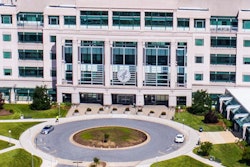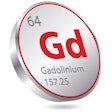Medical imaging societies have mixed responses regarding the 2026 Medicare Physician Fee Schedule (MPFS) final rule that the U.S. Centers for Medicare and Medicaid Services (CMS) issued on October 31.
Among the changes planned for 2026, the conversion factor for services provided by a qualifying Advanced Alternative Payment Model (APM) participant will be finalized at $33.57. This includes a 0.75% annual update. And services provided by non-APM participants have a conversion factor of $33.40, which includes a 0.25% annual update.
Both conversion factors also contain a 2.5% one-year increase to the MPFS conversion factor that is part of the budget reconciliation bill and a 0.49% budget neutrality adjustment.
“The efficiency adjustment targets services that have likely become able to be furnished more efficiently over time but still retain valuations based on outdated assumptions,” CMS said in its October 31 statement. “Examples include surgical procedures, diagnostic imaging interpretation, outpatient interventions, interventional pain management, and orthopedic services.”
CMS estimates the MPFS changes to affect the following imaging specialties under the finalized fee schedule: -2% for radiology, -1% for nuclear medicine, 2% for interventional radiology, and -1% for radiation oncology under the finalized fee schedule,” according to the American College of Radiology (ACR).
The agency is also finalizing its proposal to use the Medicare Economic Index (MEI) productivity adjustment percentage. This is calculated by the CMS Office of the Actuary (OACT) each year, with CMS settling on a look-back period of five years that would result in a final efficiency adjustment of -2.5% for 2026.
CMS said it is finalizing the efficiency adjustment to work relative value units (RVUs) and corresponding intraservice portions of physician time for non-time-based services.
The ACR, however, says this change is not based in reality and is not helpful.
“Any efficiencies theorized by CMS are outweighed by the increased images and reconstructions now performed per study,” said Gregory Nicola, MD, chair of the ACR Commission in Economics, in a statement to AuntMinnie. “Evolving standards of care and criteria require cancer and disease classification integration to the radiologist report. These factors demand more radiologist time, effort, and particularly judgment than ever before. The payment system needs to reflect this real-world process.”
Nicola added that this change could affect the availability of cancer screening tests such as mammography and lung cancer screening, especially in underserved areas.
“CMS needs to reconsider this approach and work with radiologists and other stakeholders to ensure fair reimbursement that reflects the complexity and value of modern radiologic care," he said.
Anders Gilberg, senior vice president of government affairs for the Medical Group Management Association (MGMA), praised the “marginal” increase to the conversion factors. However, he also said the rule includes policies that will undermine the conversion factors and “threaten the financial sustainability of medical groups and cause significant disruption to their operations.”
“Medical groups have had to deal with a 2.8% cut to the Medicare conversion factor all of 2025, and the 2026 conversion factors are barely an increase over 2024 payment levels,” Gilberg said. “This does not remedy previous cuts that medical groups have absorbed due to flawed policy, nor does it address potential future cuts resulting from budget neutrality.”
He also said arbitrary cuts to work and practice expense RVUs do not accurately reflect the cost of providing care and disproportionately impact certain specialties.
The American Society for Radiation Oncology (ASTRO) said it is concerned that flaws in the rule could put freestanding health centers at risk after years of significant declines under the MPFS.
"The complex MPFS Final Rule will have very different impacts on the radiation oncology community depending on individual clinics’ practice setting, service mix, and other factors," Sameer Keole, MD, chair of the ASTRO board of directors, told AuntMinnie.
The society also opposes the efficiency adjustment, saying it will put additional pressure on radiation clinics that are already financially strapped.
"We call on Congress to delay the efficiency adjustment and permanently reform radiation oncology Medicare payments by passing the bipartisan Radiation Oncology Case Rate (ROCR) Act this year,” Keole said.




















